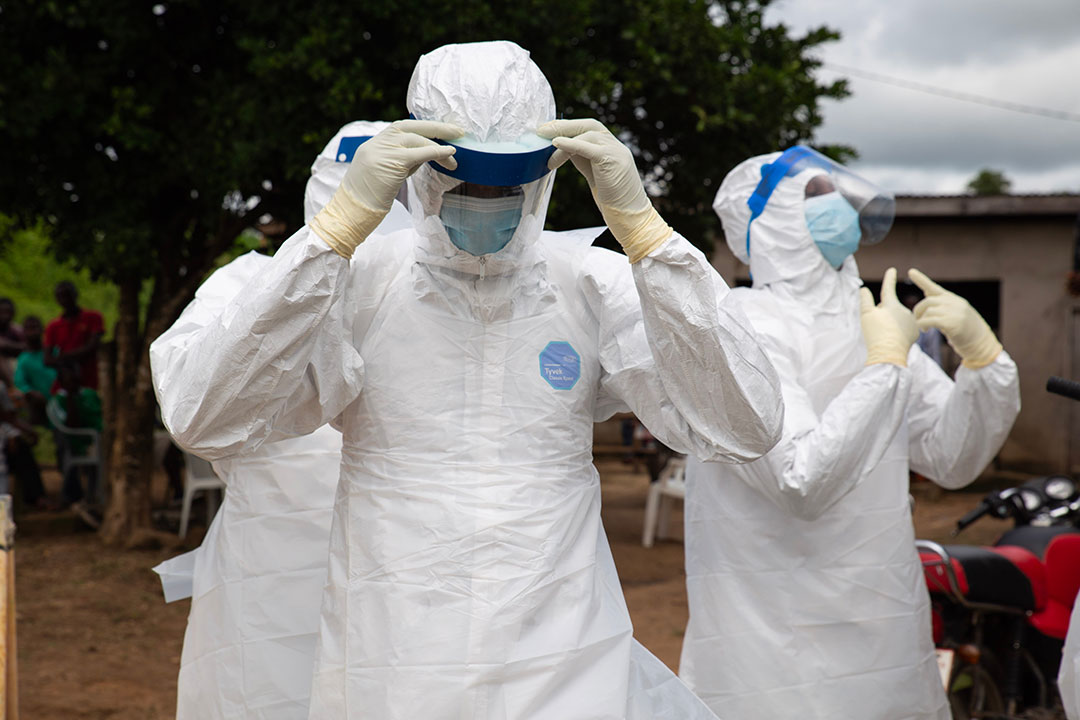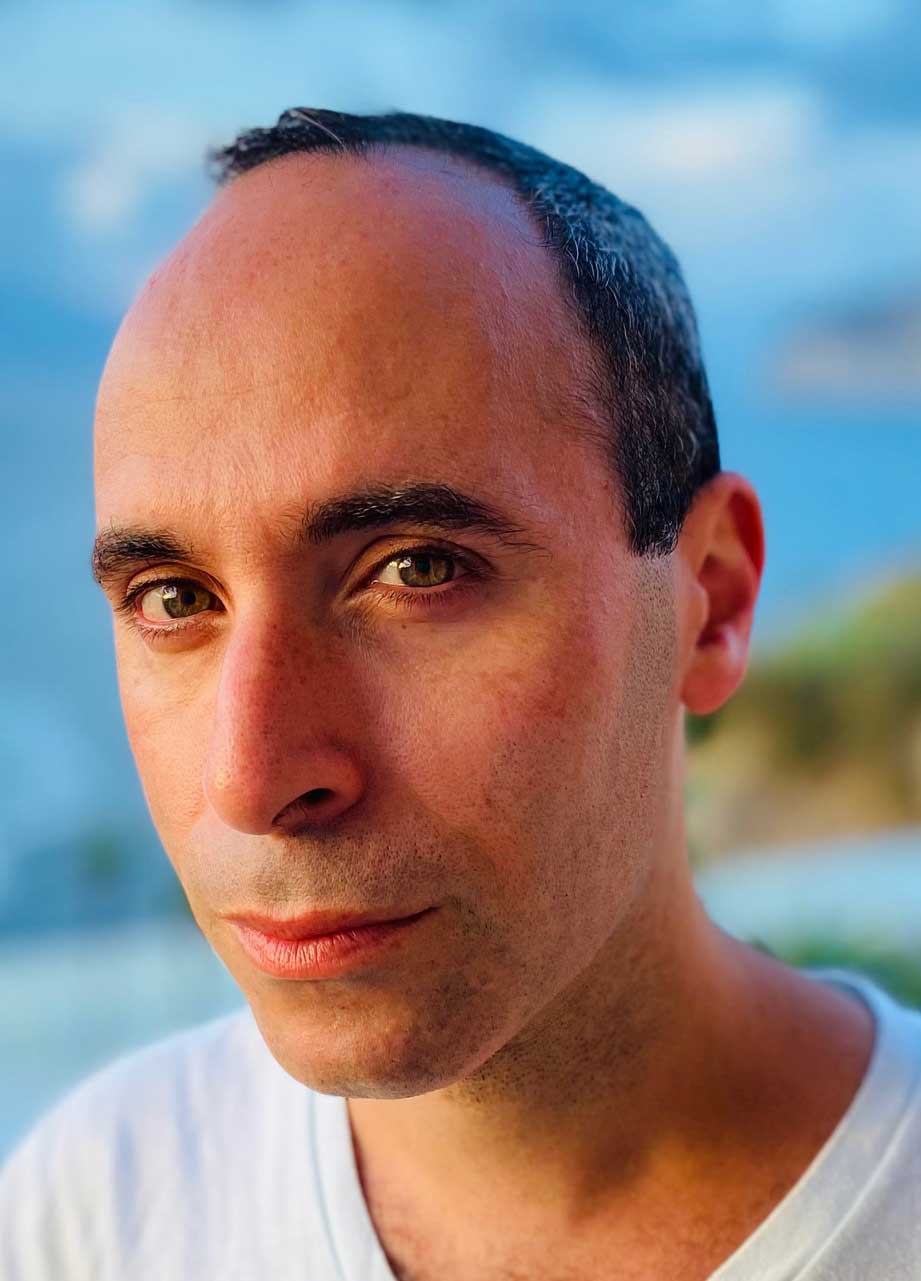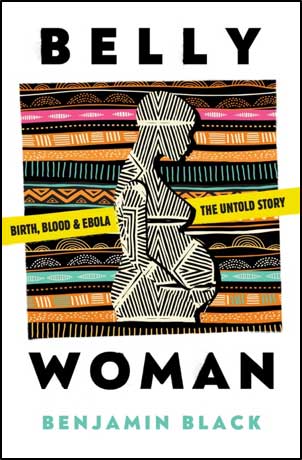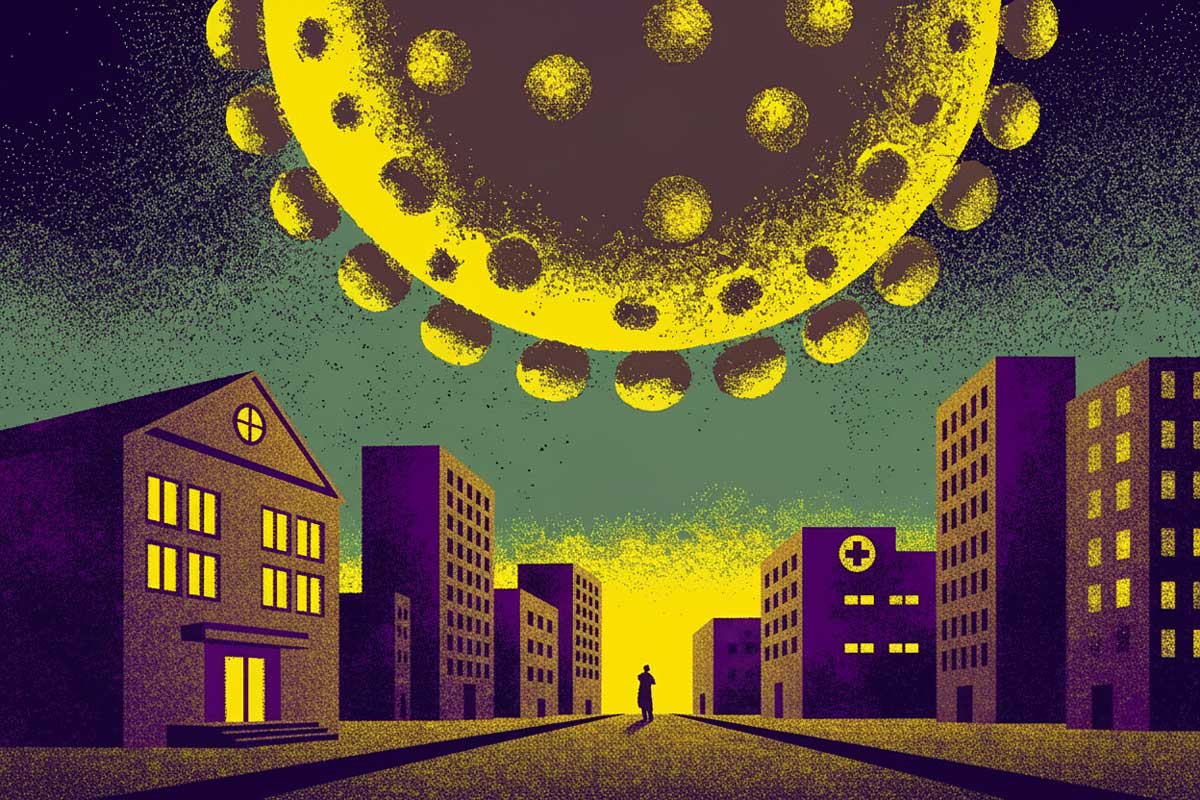“Every aspect of sexual and reproductive health is impacted”: The hidden toll of Ebola
As an obstetrician working in Sierra Leone just as the 2014-16 Ebola epidemic was taking off, Dr Benjamin Black found himself at the frontline of an unfolding health crisis. He recently published a book about his experiences, and explains how pregnant women’s needs can be impacted by infectious disease outbreaks – and what to do about it.
- 10 February 2023
- 9 min read
- by Linda Geddes

How did you come to be in Sierra Leone in July 2014?
I trained as an obstetrician in the UK, and was taking a break from my NHS work, with the intention of working in humanitarian response for Médecins Sans Frontières (MSF). The World Health Organization had recently released an updated report on global trends in maternal mortality, and Sierra Leone had the highest ratio of women dying to live births in the world.
MSF asked me to go out and work at a referral centre for obstetric complications in Gondama, in southern Sierra Leone, as part of their maternal health response. My arrival coincided with the beginning of the Ebola epidemic.
Did the possibility that some of your patients might be infected with Ebola alter how you and your colleagues interacted with them?
It was really challenging. Ebola is a viral haemorrhagic fever with a high mortality rate, spread through direct contact with body fluids – and pregnant women coming with labour and birth complications often have a lot of body fluids involved. Also, a lot of the symptoms that might raise suspicions of Ebola, e.g. bleeding, fever, vomiting, diarrhoea, miscarriage, or the foetus dying before birth, are similar to those associated with pregnancy complications.
It left us with this problem: usually, women attending hospital with an emergency would be taken into a department with lots of other patients, where we would perform invasive but life-saving procedures on them. We had to weigh that against taking a slower, more controlled approach, where we would avoid any contact with the patient without wearing full personal protective equipment, put them into isolation, and ideally wait for the results of an Ebola test – which at that time, took two or three days.
It meant we were constantly having to second guess what would normally be very simple decisions, in situations where time is critical – because the longer it takes to provide care, the more likely you are to have a bad outcome for the mother, the baby, or both of them.

What impact did that have on you and the women you were trying to help?
It impacted us psychologically, because we had come to provide maternal health care in a country where we already knew outcomes for women were very poor, and then found ourselves having to question whether to provide or deny it – without knowing whether we were making the right decisions. Quite often, we would not know the results of the Ebola tests until after a woman had died – and then we wouldn't know whether she'd died from Ebola or an obstetric emergency.
At times, it felt like we were swimming with sharks. We were constantly wondering how long we could keep on guessing and getting it right, and at what point we were going to take someone for a caesarean section and then find out that, actually, she has Ebola, and we've risked infecting ourselves and the other patients.
Presumably this affected the type of care that you were able to provide?
We were still able to provide women with the full package of comprehensive emergency obstetric care, but it meant we would sometimes have to do it a bit more slowly, or think a bit more carefully about whether or not it was the right thing to do.
The situation must have placed you and your colleagues at great personal risk. Were you scared?
I think it's one of those situations where when you're in the middle of something, it often seems a lot better. We were concerned for our safety, but my main anxiety was the wider impact of what would happen if I, or my colleagues, were to get infected, because we were working at a time where there were very few other international organisations responding to the outbreak.
We knew the situation was going to get much worse, and that organisations needed to have confidence about the risks, to be able to come and help with the response. Our fear was that if we got infected, that would have sent a very clear message to organisations that might have been sitting on the fence – and that could have had a much greater impact, not only on the Ebola epidemic, but on maternal mortality rates.
In your book, Belly Woman, you describe talking to a psychologist about your experiences, and them breaking down in tears. Do you think you became slightly numb to the suffering that you encountered?
I think I did, and it was probably necessary. At the time, we were one of only two functioning Ebola treatment centres for the whole country. Every day we were seeing people dying in quite high numbers, and hearing really tragic stories. It's not uncommon for doctors to become numb to some of the things they do – we do surgery on people every day, and if we thought about how it might feel to be cut, we wouldn't be able to do it. Looking back, I think I was probably in a state of shock. I was still able to function, but totally out of touch with the level of distress that I'd been seeing.

Are there particular patients that stick in your memory?
There are lots, but specifically, there were two young brothers. They were eight and nine years old when they were admitted into the Ebola treatment centre, and most of their family had already died, including their mum and dad. They just had one relative who was in the same tent as them – a pregnant woman who also had Ebola. Within a couple of days, all three had died. Looking after them as children, and seeing them die in that situation, I worried about who was going to remember their lives. I made a commitment to remember them – partly because there were too many people dying, and too many stories to hold onto, but I also felt a responsibility to remember them, knowing that nearly all of their family had died.
Have you read?
During COVID-19, we've heard a lot about the impact of the pandemic on death rates and hospital capacity, but less about the impact on pregnant women. How can infectious disease outbreaks affect them?
Women can be affected directly if they get infected, but there are also indirect effects. COVID-19 and Ebola are very different diseases, but the impacts on pregnant women have been similar. For one thing, women may be nervous to visit a place where they might get infected, so they either don't attend, or they come too late, and delaying seeking health care is a key reason for bad outcomes in maternal and newborn health – particularly in resource-poor settings.
During the early days of COVID-19, there was also a lot of discussion about whether pregnant women should be allowed to have a birth partner in hospital with them before, during or after labour. We know that restricting, or even just discussing restricting, access to a support person at this time, makes women more likely to delay seeking medical help, or to risk not getting something checked out, when usually they would.
However, it is not just about birth. It is also about the ability of women to access contraception and safe abortion care. It is the economic impact of the epidemic and societal changes that might put women at greater risk of sexual violence, or needing to engage in commercial sex. Every aspect of sexual and reproductive health is negatively impacted by the broader social, economic and political impacts of these kinds of crises, from the ability of women to access contraception and safe abortion care, to circumstances that might put women at greater risk of sexual violence, or a need to engage in transactional sex.
Are there specific things that you would like to see done differently, in the event of future epidemics or pandemics?
We need to break this tunnel vision that develops during epidemic or emergency responses of, e.g. it's about Ebola, so we need to focus on treating and managing Ebola, because the consequences are much broader than that specific pathogen of concern.This means bringing sexual and reproductive health into the Ebola response, or whatever response it is, but also bringing people with knowledge and skills related to Ebola into the discussions with sexual and reproductive health experts about how they are going to manage their services. They need to be integrated in both directions.
The other thing, which goes far beyond sexual and reproductive health, is we need to get far better at how we engage with communities, and ensure we're speaking in a language that everybody understands. If you don't trust politicians, you're not going to trust what they tell you, so health messaging also needs to be coming from different society leaders, religious figures, cultural icons, so people at every level of society feel that they know what's happening, understand how to reach and access services, and have the opportunity to share anxieties and speak to people they feel understand them. We also need to listen and respond to communities' concerns.
This wasn't done well during the West African Ebola outbreak, and a lot of work and effort has gone into trying improve that. But when I think about the messaging and communication around COVID-19 in the UK, particularly during the early part of the pandemic, I feel we haven't shown any sign of learning those lessons – particularly for minority ethnic groups.
Early in your book, you discuss the dilemma between being accused of playing the 'white saviour', and not recording the events you witnessed in Sierra Leone. How did you resolve that tension?
I have tried to be very clear about my position: I am not telling this story as a Sierra Leonean who was living in a village affected by Ebola, I am telling it as a witness in a position of privilege, who has the time, space and capability to share what I think is a really important story. I think would be more tragic if that story was lost and not written at all, than if I have at least tried.
Also, this isn't only my story, it is a story that I share with many people. All of the names of my colleagues in the book are real, because they all gave their consent to have this story shared. For my Sierra Leonean colleagues, who lived through this in a much deeper way than I did, they felt that this book really validated them, and put their story down onto paper and into words, so that the world will know what happened here.
Benjamin Black is a consultant obstetrician and gynaecologist in London, and a specialist advisor to international aid organisations. His book, Belly Woman. Birth, Blood and Ebola: The Untold Story, is published by Neem Tree Press.








